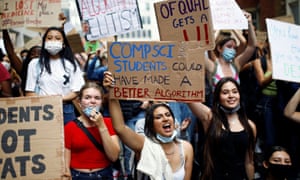Families have been stretched into strange shapes these past few months. Parents have welcomed back adult children in lockdown; kids have missed granny; singletons have forged “pods” with random housemates, wishing for that most unfashionable thing — the nuclear family.
Even before Covid-19, multigenerational living was on the rise in many countries, such as the US and UK. Now, a landmark ruling by Italy’s Supreme Court has exposed the extraordinary extent to which some Italians have been clinging on to mamma, her lasagne and her washing machine, into their thirties and forties.
The case concerned a 35-year-old man who has spent the past five years suing his parents for money to supplement his job as a part-time musician. Lower courts had forced his parents to pay maintenance, and backed his claim that he could not be expected to take work beneath his talents. In a blow for common sense, a female judge has told him to grow up. She ruled that he should “reduce his adolescent ambitions”, and that his parents should not be expected to take whatever work was going just so that he didn’t have to compromise.
The ruling is a watershed for a country that has seen hundreds of thousands of such cases, and in which two-thirds of adult children between 18 and 34 still live at home. Four years ago, a middle-aged father was ordered to keep paying for the education of his 28-year-old son who had dallied over a degree in literature and then enrolled on a course in experimental film. The court ruled that the father must pay for the film course because it was in line with the son’s “personal aspirations”.
Where does this sense of entitlement come from? In the days when every generation did better than the one before, there might have been an argument that the young should have the luxury of finding themselves. But to make this a right to parental support is absurd.
Some families have been willing co-conspirators in dependency: one friend in Florence attended a recent wedding where the mother-in-law cut the cake with the bride and groom. But we should think twice about remaining centre stage in our kids’ lives. The Italian Association of Matrimonial Lawyers says one in three divorce claims are related to the financial support of adult children.
The coddling of the group dubbed “bamboccioni”, big babies who are reluctant to leave home, may seem hilarious. But Italy is also an extreme example of the diminished financial prospects of younger generations. The Bank of Mum and Dad is working overtime in many countries — and not always on a voluntary basis.
I recently met a British father who had put down a hefty deposit on a flat for his two “boomerang” daughters, after repeatedly coming home from work to find their live-in boyfriends had drunk all his beer. Having initially embraced them after university, he was now bribing them to leave.
So the fact that Bomad is the UK’s tenth biggest mortgage lender is not as heart-warming as it may appear. It’s an elegant way to say arrivederci.
Nations that have failed to stem youth unemployment, or curb generational wealth gaps, have also brought this upon themselves. Student debt is a major factor in the decision not to fly the nest, with almost half of young millennials in America last year saying they planned to return home after college. But there seems to be a weakening of the drive for independence. One survey of American millennials found that the age at which they regard it as embarrassing to live with one’s parents is 28. That’s 10 years older than I was when my divorcing parents told me I had to stand on my own two feet.
All this suggests that our concept of adolescence is out of date. Far from the traditional five-year window spanned by the “teens”, some academics argue that the period of growing from child to adult should be redefined as running from the age of 10, when some girls hit puberty, to 24, the average age of leaving home in Australia, the US and UK. Indeed, this fits with longer education spans, and uncertain job markets.
Paradoxically, one side-effect of Italian coddling has been to undermine the family. With so many adult offspring hanging on to the apron strings, Italy now has one of the lowest birth rates in the world.
Just at the moment when it feels as though family is resurgent, it could be sowing the seeds of its own collapse. In 2019, 28 per cent of Italy’s 20- to 34-year-olds were not in education, employment or training — the highest proportion in the EU. Unless this is fixed, the young will not carry the burden of an ageing population.
There are many good things to be said for la famiglia. The conventional family unit is often derided. But since the crisis, families have been quietly and stolidly making up for failures of welfare states. While academics point to the risk that older generations will sit on their growing relative wealth, many couples have been shovelling their love, pension money and housing wealth towards the young. That’s as it should be: just as long as the young don’t take it for granted.

